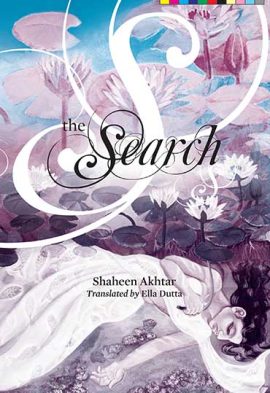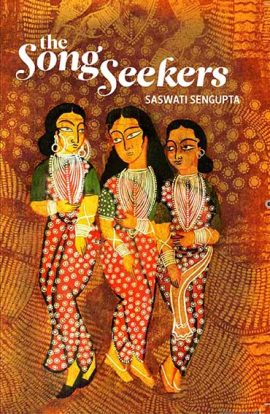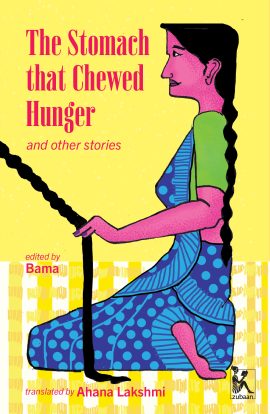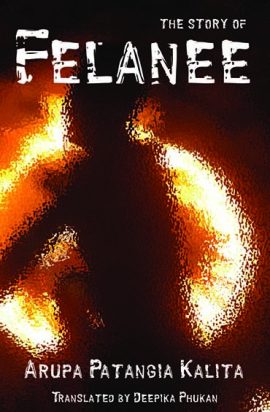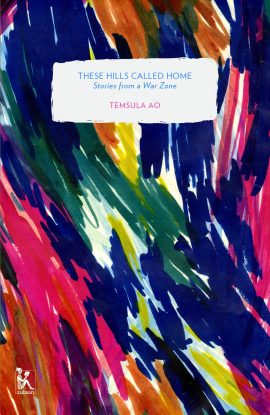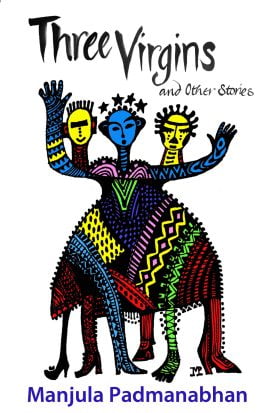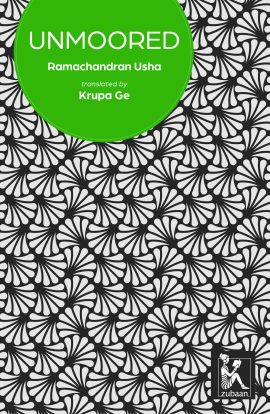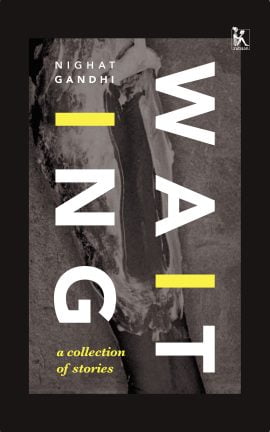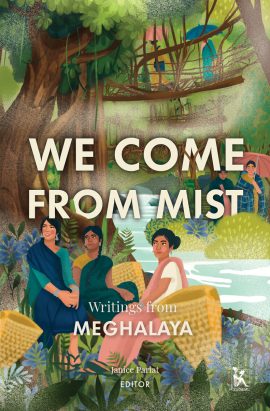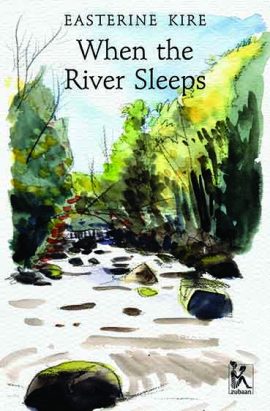No products in the cart.
Return To Shop
Log in / Sign in
Login
Register
Filter by price
The Red Road
₹ 175 – ₹ 350Price range: ₹ 175 through ₹ 350
Amolik Dey is Everyman. A teacher with a young wife and son, he is dedicated to taking care of his family yet cannot turn a blind eye to the inequalities he sees around him. Torn between his wife's desire for a 'normal' life and his own passion for fighting injustice, he endangers both himself and his family with his increasing militancy.Set in a small town in the Bengal of the 1960s and 70s, this is a story of unrest and rebellion. It is a time of great upheaval, of violence and agitations, and the author subtly weaves in how the political tensions that threaten to overwhelm the state also impact the ordinary lives of this one family, destroying their world. From Naxalite uprisings which bring brutal conflict to those places that have been ignored by the political mainstream, to the complexities of class and gender, and the post-colonial hangover of a newly independent people, this gritty novel sensitively portrays a town and a people who have one foot in the past and one foot tentatively in the present.
Select format
This product has multiple variants. The options may be chosen on the product page Books, e-Books, Feminism In India Recommends, Feminism In India Recommends, Fiction, Fiction, Zubaan-Penguin Joint List, Zubaan-Penguin Joint List
The Search
₹ 198 – ₹ 395Price range: ₹ 198 through ₹ 395
Talaash is the second novel of the Bangladeshi writer Shaheen Akhtar. It captures the brutalities of the 1971 war of liberation and its contingent afterlife -- more specifically, the scars it has left on women. For thirty long years, Mariam, the protagonist of the novel, lives with memories of a war that refuses to end for her. The analeptic and proleptic shapings of Shaheen's prose travel in and through those shattered memories (and their public use) to construct a devastating archive of pain and anguish, far beyond the pale of cause and effect.Shaheen Akhtar's mesmerizing and moving novel, set against the background of the Bangladesh war of independence, explores the violence done to women, their courage and heartbreak, their search for love and their betrayal. Taalash (The Search) was awarded the Prothom Alo Literary Prize in 2004.
Select format
This product has multiple variants. The options may be chosen on the product page The Song Seekers
₹ 198 – ₹ 395Price range: ₹ 198 through ₹ 395
As the monsoon rains wash over the city of Kolkata, four women sit and read and talk in the kitchen of Kailash-- the old mansion of the Chattopadhyays where Uma comes to live after her marriage in the summer of 1962. Her husband's silence about his mother and the childhood tragedy that beckons him from the shadowy landing of Kailash, the embroidered handkerchiefs in an old soap box in her father-in-law's room and the presence of the old, green-eyed Pishi intrigue Uma. But it is only as she begins to read aloud the traditional Chandimangal composed by her husband's grandfather to celebrate the goddess that the smothered stories begin to emerge...The novel weaves in the history of the militant goddess recast as wife, the Portuguese in Bengal, the rise of print and the making of memories from the Swadeshi movement to the turbulent sixties in Bengal as Uma discovers that the foundation of Kailash is not only very deep but also camouflages the stench of death.
Select format
This product has multiple variants. The options may be chosen on the product page The Stomach That Chewed Hunger and Other Stories
₹ 225 – ₹ 375Price range: ₹ 225 through ₹ 375Tamil Literature in English Translation Series
Jealous of the ‘success’ of his hardworking farmhands, the rich farmer cuts off access to their land; a free gift won by a working-class family is appropriated by their rich employer who feels his status entitles him to such benefits, a teacher finds herself rendered speechless by the subtle, insidious ways in which caste operates around her, a pregnant woman dreams of clean toilets for her child. Hard hitting, often unrelenting, the twelve powerful stories in this slim volume have been selected by Bama, a Dalit writer who broke new ground by speaking out publicly against caste discrimination, particularly in the Church. Written in everyday Tamil and in regional dialects, and skillfully translated by Ahana Lakshmi, the stories are firmly rooted in the twin experiences of caste and gender and upend much of the received wisdom about what counts as ‘good’ literature.Contributors: Nachiyal Suganthi | Aranga Mallika | Bama | Amutha Arathi | Puthiya Maadhavi | Revathi Muhil | P. Sivakami | Thenmozhi | Uma DeviBAMA is a celebrated contemporary dalit writer in Tamil. She has been in the forefront of feminist and anti-caste activism and has given dalit aesthetics tremendous visibility on the literary campus as well as at literature festivals in India and abroad. Bama’s writing offers compelling insights into human nature and her portraits of ordinary people and their everyday pleasures, rebellions and deceits are unforgettable. Her pathbreaking autobiographical novel Karukku won the Crossword Award in 2000 and is widely taught. Her other publications include Sangati (1994), Kisumbukkaran (1996), Vanmam (2002) Oru Thath Avum Yerumayum (2003) Kondattam (2009) Manushi (2012), Thavittukuruvi (2015) and Virutchangalagum Vithaigal (2022). Her works have been translated into many languages including English, French, Hindi, Telugu, Kannada, Gujarati and Malayalam.AHANA LAKSHMI holds a PhD in Environmental Science and has been writing from a young age. She has translated a selection of Ranganayaki Thatham’s writings entitled From the Inner Palace: A Kumudini Anthology and Prema Nandakumar’s Election Fever and Other Stories. She writes for children and is on the editorial board of Rashtra Deepika’s Children’s Digest.
The Story of Felanee
₹ 315 – ₹ 395Price range: ₹ 315 through ₹ 395
The Story of Felanee is based on real life events. It is a story of courage, of survival, of ethnic conflict and violence that tears people and communities apart in the most brutal, savage way. Set in Assam, which has seen two major agitations that have crippled the economy, this is a story that will shock the reader by its sheer passion, and its brutal honesty. The callousness and utter disregard for human life, the ugly play for power, for electoral gain, the sham and petty hypocrisies, the bloody horror of ethnic violence all lie exposed in this powerful novel written by one of Assam’s leading fiction writers.The story revolves around the experiences of one woman: Felanee. Her name means ‘thrown away’—so called because as her mother lay dying in the burning riot-torn village, Felanee was thrown into a swamp and left to die. But against all odds, Felanee—and thousands like her—survived.Like the reeds that grow in such profusion along the bank of Assam’s rivers, the rootless inhabitants of the refugee camps and makeshift shanties, whose stories form the core of Felanee, are swept along by the wind and thrown onto new hostile terrain but they cling on with tenacity to take root again and again.
Select format
This product has multiple variants. The options may be chosen on the product page The Woman Who Thought She Was a Planet
₹ 275During the current COVID-19 surge we are shipping orders from Delhi once per week. Please allow 8-10 business days for delivery.
Already a name in the world of science fiction and fantasy writing, Vandana Singh brings her unique imagination to a wider audience with her first collection of stories.In the title story, a woman tells her husband of her curious discovery: that she is inhabited by small alien creatures. In another, a young girl returning home through the streets of Delhi comes across a mysterious tetrahedron: is it a spaceship? Or a secret weapon?Each story in this fabulous collection opens up new vistas—from outer space to the inner world—and takes the reader on an incredible journey to both"A most promising and original author." — Ursula K LeGuin, author of The Earthsea Trilogy
"Read [this collection] in homage to the first Indian writer to make a serious mark in the SF world; or read it simply because she writes with such a beguiling touch of the strange." — Nilanjana Roy, The Business Standard
VANDANA SINGH was born and raised in New Delhi, and currently lives in the United States near Boston, where she writers and is a professor of physics. Her short stories have appeared in numerous venues and several Best of Year anthologies, including the Best American Science Fiction & Fantasy. She is the author of the ALA Notable book Younguncle Comes to Town (Young Zubaan/Puffin India, 2004) and a second short story collection, Ambiguity Machines and Other Stories (Zubaan 2018).
Books, Books from the North East, Books from the North East, Feminism In India Recommends, Fiction, Zubaan-Penguin Joint List
These Hills Called Home: Stories from a War Zone (Zubaan Classics)
₹ 325
This touching and at times harrowing glimpse into the conflict-ridden Nagaland is now available in a brand new paperback edition as part of the Zubaan Classics series to celebrate Zubaan's 10th anniversary.More than half a century of bloodshed has marked the history of the Naga people who live in the troubled northeastern region of India. Their struggle for an independent Nagaland and their continuing search for identity provides the backdrop for the stories that make up this unusual collection. Describing how ordinary people cope with violence, how they negotiate power, and force, how they seek and find safe spaces and enjoyment in the midst of terror, the author details a way of life under threat from the forces of modernization and war.No one -- the young, the old, the ordinary housewife, the willing partner, the militant who takes to the gun, and the young woman who sings even as she is being raped -- is untouched by the violence. Theirs are the stories that form the subtext of the struggles that lie at the internal fault lines of the Indian nation-state. These are stories that speak movingly of home, country, nation, nationality, identity, and direct the reader to the urgency of the issues that lie at their heart.
TEMSULA AO is the Dean, School of Humanities and Education, North Eastern Hill University, Shillong.
Add to cart
"Temsula Ao, like many of her predecessors has successfully described the experiences of her people. The struggle for freedom and the search for identity have been discussed by many writers and these are pivotal themes of those who had to pay a heavy price for freedom. To this end Temsula Ao must be praised for her successful attempt." -- Shagufta Yasmeen, Dawn
TEMSULA AO is the Dean, School of Humanities and Education, North Eastern Hill University, Shillong.
Three Virgins and Other Stories
₹ 250 – ₹ 499Price range: ₹ 250 through ₹ 499
Author-artist Manjula Padmanabhan returns with ten stories: five new, five old, some dark, some funny, all edgy.A vampire visits New Delhi, a space traveller returns to her ancestral home, a character from an ancient epic is transported into the future... To each story Padmanabhan brings an unexpected twist, a touch of satire, a whiff of cynicism, a delicious undercurrent of dark humour.Drawing on her earlier, highly acclaimed anthology, Hot Death Cold Soup, and adding new stories to it, Padmanabhan presents a potent and sometimes disturbing collection that will leave readers asking for more.
Select format
This product has multiple variants. The options may be chosen on the product page "She revels in the macabre, pushes the envelope on the extreme... Her stories and plays work so masterfully on so many levels?as twist-in-the-tale page-turners, as on-the-edge adventures, as miniature theatres of the absurd that the reader's imagination plays almost as singular a part in them as the writer's." -- Sumana Mukherjee, The Hindu"The best thing about these stories is their momentum, their narrative drive. You keep turning the pages and there is always a pay-off at the end.... Hot Death, Cold Soup not only stays afloat, it fairly zips along, it flies." -- Mukul Kesavan, Outlook "Padmanabhan is aware of the fact that a story can grab a reader with the use of humour. But the hooks sink in when even the farfetched sounds plausible?That is her real strength ? to make the reader feel comfortable, and still keep him guessing." -- Arun Katiyar, India Today
Unmoored
₹ 280 – ₹ 395Price range: ₹ 280 through ₹ 395In Unmoored, Ramachandran Usha crafts an intimate exploration of migration and belonging. Three women—Ayesha, Indu, and Ameera—return to Chennai from the Gulf, each looking to reunite with the loved ones they left behind. Despite differences in religion, social status and age, they are also united in their quest for a true sense of home. Usha’s novella dwells on the seldom-told yet pervasive story of women who travel to the Middle East and beyond, driven by the need to secure their families’ futures.
The protagonists of the two short stories featured in this collection, ‘Khushka’, and ‘Success’, have much in common with the women of Unmoored, even as they grapple with crises of faith and finance.
______________________________________________________________________________________Ramachandran Usha has been writing in Tamil since 2003. She was awarded the second place in the KiVa Jagannathan Centenary Novel Award Competition for Karai Thedum Odangal (translated as Unmoored). She also won a short story competition held by Kalki and has been published widely in leading magazines and online journals.
Krupa Ge is a writer from Madras (Chennai). She is the author of a novel, What We Know About Her (2021) and a narrative non-fiction book, Rivers Remember (2019). Her reportage and cultural writings have appeared in Indian and international publications over the last 14 years.
Waiting: A Collection of Stories
₹ 300 – ₹ 425Price range: ₹ 300 through ₹ 425
In this new collection by well- known author Nighat Gandhi, the private worlds of women open themselves up to the reader. Inside their homes are women trapped in a state of continuous limbo, waiting for change; young girls struggling for the ‘purity’ that religion demands of them; new mothers who wonder at the absence of desire. Outside, the seasons change, trees shed their leaves, the sky becomes overcast, sounds float in to them and they wonder about the meaning of life. Each of the stories bring questions for the reader, their nuanced telling and their unsparing truthfulness leave readers with a sense of discomfort as they confront their own demons. Love, longing, loss, aging, survival, hope and self-invention—in other words, life— are what these stories are about.
NIGHAT GANDHI is a mental health counsellor, a mother, a South Asian, queer-feminist, Vipassana meditator, and a student of Taṣawwuf (Sufism). She wrote many of these stories armed with cups of Leo coffee, riddled with self-doubt, and bothered by back pain as a result of spending hours hunched over her laptop, in the comforting company of her two dearest companions, Dodi and Heidu, who snoozed on the floor and kept sleepful watch over her. Waiting is her fourth book.
Select format
This product has multiple variants. The options may be chosen on the product page “A clear-eyed view of life’s innate contradictions” —Mita Ghose, The Hindu
“Allahabad may just have found her Chekov” — Irwin Allan Sealy
“Touches of poetry” — Anjana Basu, Outlook
NIGHAT GANDHI is a mental health counsellor, a mother, a South Asian, queer-feminist, Vipassana meditator, and a student of Taṣawwuf (Sufism). She wrote many of these stories armed with cups of Leo coffee, riddled with self-doubt, and bothered by back pain as a result of spending hours hunched over her laptop, in the comforting company of her two dearest companions, Dodi and Heidu, who snoozed on the floor and kept sleepful watch over her. Waiting is her fourth book.
Books, Books from the North East, Books from the North East, e-Books, Fiction, Fiction, New Releases, New Releases
We Come From Mist: Writings from Meghalaya
₹ 395 – ₹ 595Price range: ₹ 395 through ₹ 595
This book is an offering—of prose, poetry, musical lyrics, and visual art—by the women of Meghalaya in Northeast India. One of the smallest states in the country, but also, one of the most beautiful, Meghalaya is blessed with landscapes that mesmerize and inspire song and story. In the not-so-distant past, though, it has also seen political turbulence and civil unrest, and many of the works here capture that quiet unease—in homes and kitchens, in market-places and public taxis. Yet this anthology is also a celebration. Of wisdom and joy, of queerness and sisterhood, of mothers and feminine bodies, of home and hearths. Of voices new and established. Brought together in one volume by Janice Pariat, a novelist and poet from these hills. Here, we sit together around a fire, and sing, and weep, and dance, and tell stories. We dream of where we came from, the hills, the mist, and dream of what else we are still yet to discover.
Contributors: Amanda Basaiamoit | Amanda Christie Tongper | Amrita Dutta | Angel Konthoujam | Anjum Hasan | Antara Roy Oruganti | Balaiamon Kharngapkynta | Bymonmiralda B Lato | Careen Joplin Langstieh | Cheryl Rynjah | Clarissa Giri | Daiaphi Lamare aka Reble | Daiarisa Rumnong | Daribha Lyndem | Esther Larisa David | Evangelene Nongkhlaw | Fileona Dkhar | Jobeth Ann Warjri | Karen L. Donoghue | Lahundashisha Kharshiing | Longnam Wanbiang Kharpuri | Maya Mawlong | Menty Jamir | Reeju Ray | Samanda Nora Pyngrope | Satarupa Paul | Saweini Laloo
JANICE PARIAT is the author of Boats on Land: A Collection of Short Stories and Seahorse: A Novel. She was awarded the Sahitya Akademi’s Young Writer Award and the Crossword Book Award for Fiction in 2013. Her novella The Nine Chambered-Heart, bestselling in India, was published in the UK and in ten other languages including Italian, Spanish, French, and German. Her most recent work Everything the Light Touches has been widely acclaimed. She lives between Shillong and New Delhi with a cat of many names.
Select format
This product has multiple variants. The options may be chosen on the product page Contributors: Amanda Basaiamoit | Amanda Christie Tongper | Amrita Dutta | Angel Konthoujam | Anjum Hasan | Antara Roy Oruganti | Balaiamon Kharngapkynta | Bymonmiralda B Lato | Careen Joplin Langstieh | Cheryl Rynjah | Clarissa Giri | Daiaphi Lamare aka Reble | Daiarisa Rumnong | Daribha Lyndem | Esther Larisa David | Evangelene Nongkhlaw | Fileona Dkhar | Jobeth Ann Warjri | Karen L. Donoghue | Lahundashisha Kharshiing | Longnam Wanbiang Kharpuri | Maya Mawlong | Menty Jamir | Reeju Ray | Samanda Nora Pyngrope | Satarupa Paul | Saweini Laloo
JANICE PARIAT is the author of Boats on Land: A Collection of Short Stories and Seahorse: A Novel. She was awarded the Sahitya Akademi’s Young Writer Award and the Crossword Book Award for Fiction in 2013. Her novella The Nine Chambered-Heart, bestselling in India, was published in the UK and in ten other languages including Italian, Spanish, French, and German. Her most recent work Everything the Light Touches has been widely acclaimed. She lives between Shillong and New Delhi with a cat of many names.
Books, Books from the North East, Books from the North East, e-Books, Feminism In India Recommends, Feminism In India Recommends, Fiction, Fiction
When the River Sleeps
₹ 235 – ₹ 495Price range: ₹ 235 through ₹ 495
Winner of the Hindu Prize for Fiction, 2015.A lone hunter, Vilie, sets out to find the river of his dreams: to wrest from its sleeping waters a stone that will give him untold power. It is a dangerous quest, for not only must he overcome unquiet spirits, vengeful sorceresses and daemons of the forest, there are men – armed with guns – on his trail. Easterine Kire’s novel transports the reader to the remote mountains of Nagaland, a place alive with natural wonder and supernatural enchantment. As Vilie treks through the forest on the trail of his dream, we are also swept along in this powerful narrative and walk alongside him in a world where the spirits are every bit as real as men and women, and where danger – or salvation – lies at every turn.Kire’s powerful narrative invites us into the lives and hearts of the people of Nagaland: the rituals and beliefs, their reverence for the land, their close-knit communities – the rhythms of a life lived in harmony with their natural surroundings. It is against this spellbinding backdrop that Kire tells the story of a solitary man driven by the mysterious pull of a dream, who must overcome weretigers and malignant widow-spirits in the search for his heart’s desire.
Select format
This product has multiple variants. The options may be chosen on the product page “...reminiscent of Marquez’s magic realism and Leslie Silko’s Native-American story-telling. At the end, though, this is a Naga story, unmistakably so, in its sense of place, time, and oral traditions.”
Paulus Pimomo, Central Washington University, USA
Categories
Filter by Author
Filter by
Product tags
academic
Bangladesh
caste
conflict
culture
Dalit women
e-essays
feminism
feminist
feminist fiction
Feminist literature
Fiction
gender
gender studies
health
history
impunity
India
Kashmir
legislation
Literary Fiction
Memoir
Nagaland
New Editions
Non-Fiction
Northeast India
Pakistan
Poetry
sexual violence
Short Stories
sociology
South Asia
state impunity
SVI
SVI Project
Top Ten
translation
violence
violence against women
warehouse wonders
women writer
women writers
young zubaan
zubaanbooks
Zubaan Classics
Contact Us
© Zubaan 2019. Site Design by Avinash Kuduvalli.
Payments on this site are handled by CCAvenue.


